In the service-based industry, particularly within startups and SaaS companies, prioritizing and productizing services is essential for achieving scalability, maintaining consistency, and enhancing customer satisfaction.
At Propel24, Rocky DSouza, the AVP of Customer Success at Netomi, explores the importance of productizing services, the benefits it brings, and practical steps to implement this strategy effectively.
Understanding productizing services
Productizing services means transforming your service offerings into tangible, standardized products that can be sold at scale.
This is a popular and effective concept in SaaS, where the focus is on selling a product with implementation services often included for free, making the services less tangible.
To productize your services for easier scalability, you need to make them tangible and standardize your offerings. Let’s take a look:
- Tangible services: Define your services clearly. For example, instead of just offering "implementation services," break it down into specific packages—basic, advanced, and enterprise—each detailing the scope of services, such as the number of use cases and integrations.
- Standardized offerings: Create clear, replicable service packages.
This makes it easier for the sales team to pitch your service packages to your clients. Once you have a base offering in place, you can always offer add-on services for an additional fee. Making your services tangible and standardized ensures consistency in delivery, streamlines operations, and facilitates easier scaling.
Why you should productize your services
Now that we understand what productizing services means, the next question is why. Is it viable to productize services? Here are some reasons why productizing services could help you scale your business:
Standardization and scalability
Productized services can be easily replicated using predefined templates and processes, ensuring consistent quality and facilitating scalability.
Clear value proposition
Standardizing your services enables you to make a clear value proposition to your clients by showcasing the specific problems you solve with your services.
For instance, a company without a development team might need comprehensive implementation and support services.
Marketing and sales alignment
Clearly defined service packages help marketing and sales teams target the right customer segments, aiding in effective pricing strategies and customer satisfaction.
Operational efficiency
Standardizing services reduces costs, improves efficiency, and enhances profitability by streamlining operations and automating repetitive tasks.
Predictable revenue streams
Defined service packages enable accurate revenue forecasting, supporting subscription or retainer models for ongoing revenue.
When you break down your service packages and provide transparent hourly rates, you offer clients visibility into every aspect of the business. This upfront clarity allows for more accurate predictions of revenue streams from a services perspective.
Additionally, introducing Statements of Work (SOW), subscription, or retainer models, where customers pay upfront for a specific set of hours, further enhances the predictability of revenue streams.
Enhanced customer experience
Customers benefit from clear expectations regarding service scope and costs improving overall satisfaction and trust. This reduces the need for repeated expectation-setting regarding the services provided by the team.
How to productize your services
When contemplating trying a product, professionals often deliberate over various factors. Similarly, in the services industry, we shall employ a comparable approach, discerning the elements clients would seek from a product standpoint. We then assess how many of these factors we can integrate while refining our services for marketability.
To effectively productize services, treat them as products by focusing on key aspects:
1. Scope of services
- Clearly define your scope of services: Outlining the services offered—whether it's development, project management, quality assurance, or managed services—lays a solid foundation for effective communication with clients.
- Highlight expertise and industry experience: Highlighting expertise, industry experience, certifications, and the ability to scale helps build trust and credibility.
- Offer customization options: Allowing customers to tailor packages to their specific needs ensures that they receive solutions that are precisely aligned with their requirements. This level of flexibility not only enhances customer satisfaction but also demonstrates a commitment to meeting individual client needs.
- Provide multiple packages: You can also provide multiple packages to further enhance the customer experience. Offering a range of options empowers the clients to choose the package that best suits their needs and budget.
This approach ensures that clients feel in control of their decision-making process while still benefiting from your expert guidance and recommendations.
When discussing resources, specify the number of personnel and their expertise across various domains. Highlight advanced qualifications such as PhDs or industry-specific certifications.
Remember to always mention the customization options available, demonstrating how you can tailor your services to meet the unique needs of each organization.
This comprehensive approach ensures clients understand the depth of your expertise and the flexibility of your service offerings.
2. User experience and implementation methodology
- Implementation methodology: When considering the user experience from a service perspective, it's crucial to focus on your implementation methodology.
This aspect defines how your customers will perceive and interact with your services. Are you using Waterfall, Agile, or a hybrid approach? Clearly articulating your methodology is essential, as it directly impacts the customer experience. - Unique aspects of the implementation process: Always highlight unique aspects of your implementation process to set yourself apart and demonstrate your commitment to effective and efficient service delivery.
- Knowledge transfer methods: Emphasize your communication and knowledge transfer methods to ensure clear and consistent interactions. Utilize tools like Slack or Teams to facilitate seamless communication throughout the project lifecycle, ensuring alignment on how information and data will be shared.
3. Risk management and compliance
Highlighting your risk management and compliance measures is essential for building trust with your customers. Certifications such as ISO, SOC 1, and SOC 2 assure customers of your commitment to security and compliance standards.
It is crucial to include appropriate compliance language and insurance coverages in contracts and agreements to protect both parties.
You must also address specific customer requirements, such as resource location constraints, ensuring that all necessary infrastructure meets compliance standards.
4. Cost and pricing
- Define your pricing model: Clearly defining your cost and pricing models is crucial for transparency and customer satisfaction. Specify whether you charge a fixed fee, time and materials (T&M), retainer, or managed services models.
Also, specify if you’re offering any discounts or additional resources for free so that it distinguishes you from other vendors. - Offer offshore and onshore models: Offering different rates for onshore and offshore models can provide flexibility and enhance perceived value. This approach gives customers various options to choose from, making them feel like they’re getting the best deal possible.
- Provide milestone-based fixed pricing: Implementing milestone-based fixed pricing helps spread payments and track progress effectively using project management tools. Customers will appreciate knowing how you are tracking both the project's progress and the associated costs.
5. Reputation and references
Reputation and references play a critical role in how customers evaluate services. Just as they do with product purchases, clients will look for references and reviews from previous clients to gauge the quality of your services.
Collect feedback that emphasizes the service aspect, including how the implementation team performed, the effectiveness of communication, and the tools used.
Keep references organized by industry verticals or provide customer quotes to help potential clients relate more closely to the experiences of others.
6. Future roadmap and scalability
When discussing the future roadmap and scalability, present your plans for services just as you would for product roadmaps. Highlight managed services and scalability options to demonstrate how you can grow with your customers.
Emphasize the training facilities and onboarding processes for new resources to assure consistent quality.
Provide details on knowledge centers and training universities to showcase how both new hires and customers are trained, ensuring a high standard of service.
Practical example
If you had to view implementing a service through the lens of a SaaS product, here’s a practical example of how you could do it:
- Scope: Implement a SaaS product for 10 use cases, two API integrations, and 300 hours of implementation. Includes a project manager, business analysts, and developers.
- Methodology: Agile methodology with three-week sprints, using Rocketlane as the implementation tool.
- Compliance: SOC 1 and SOC 2 compliant, ISO certified, with all resources located in the US.
- Pricing: Fixed price with additional hours purchasable at specified rates, broken down by resource skill levels.
- Reputation: Links to G2 reviews and available client references.
- Scalability: Training facilities for new resources and a managed services model allowing scalability.
Closing thoughts
Transforming services into tangible, standardized products is essential for SaaS companies to scale effectively, maintain consistency, and enhance customer satisfaction. By focusing on clear scope, effective methodologies, risk management, transparent pricing, strong reputation, and future scalability, companies can successfully productize their services.
Implementing these strategies will streamline operations and ensure a predictable revenue stream and an enhanced customer experience. With these fundamentals, your organization will be well-positioned to meet the market's growing demands and achieve sustained success.








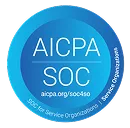
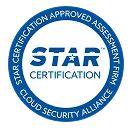

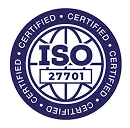









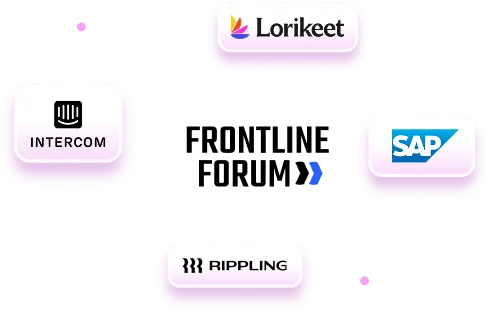
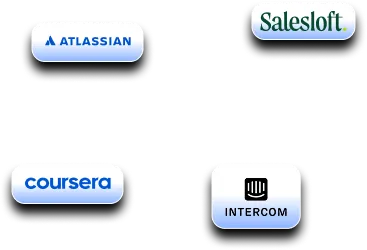

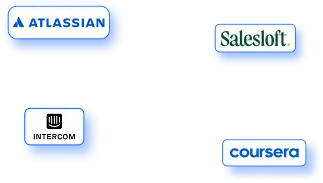
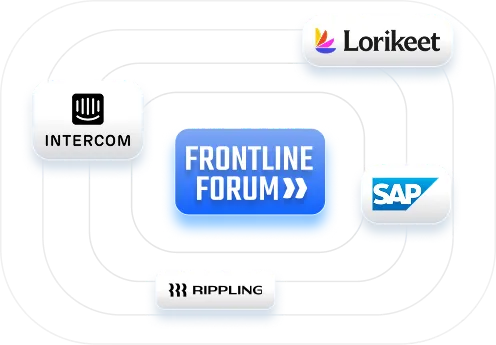
.webp)